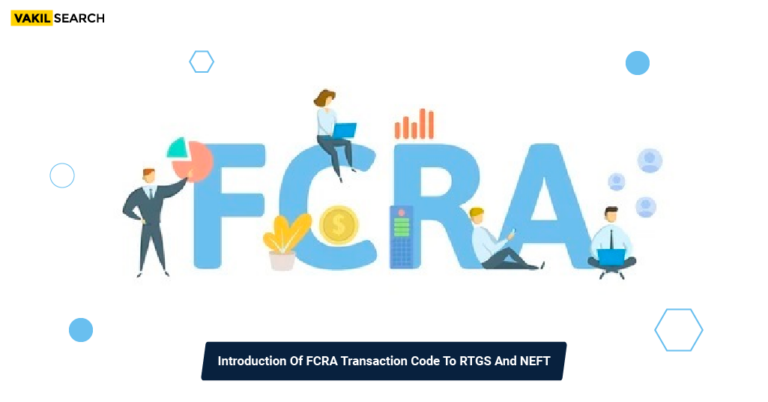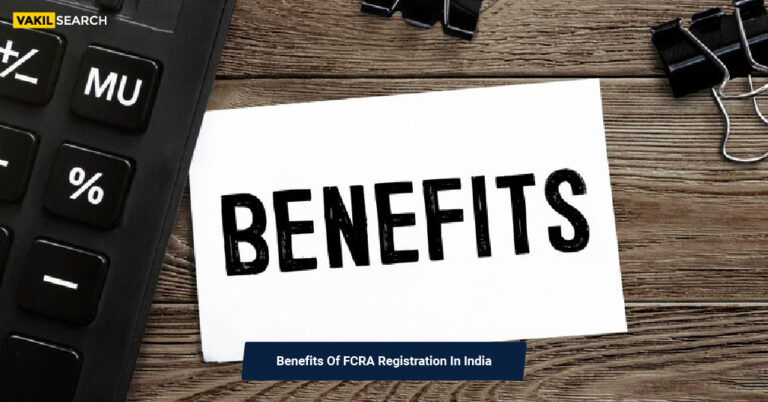Working for social good without any profit motive is god’s service in today’s society. This article talks about everything you need to know if you want to start your own NGO.
What Is an NGO?
Non-governmental organisations (NGOs) are voluntary groups of individuals or organisations that aim to provide non-profitable services that advocate for public policies. They play an important role in the pan development of a nation by providing education, resources and motivation to the non-privileged section of the population. A NGO Registration online gains the legal status and becomes accountable for the funds received. For instance, when an individual donates funds to a charitable trust, it is received under the name of the organization and used for the trust’s activities. In an unregistered firm, the assets can be received under anyone’s name and may be used for their own profit.
Non-profit organizations are primarily focused on improving society. The registration process for different types of organizations is determined by the law, and it is important to choose the appropriate registration process.
NGOs can be of different types:
- Charitable orientation
- Service orientation
- Participatory orientation
- Empowering orientation
- Community-based orientation
- National NGOs
- International NGOs
All you need to know about NGO registration:
What are the different types of NGO registration available?
There are three types of NGOs as specified by Section 8 company of Society and Trust:
- Section 8 Company Registration under the Companies Act, 2013- It has the most credibility as compared to other types of NGOs amongst donors, government and other stakeholders. Their main aim is to promote art, sports, education, religion, social welfare, charity and environmental protection through various social activities.
- Trust Registration under the Trust Act, 1882- A ‘trust’ is a non profitable organisation registered under the trust act of 1882. A trust is a legal entity where the owner ‘trustor’ transfers his assets to the secondary party or ‘trustee’ for the benefit of the third party or ‘beneficiary’. A trust can be both public and private.
- Society Registration under the Societies Registration Act, 1860- A society is a form of non-governmental organisation created by a group of individuals united for a common non-profit objective of a charitable cause, for example, education art science and religion sports etc.
Effective from April 1, 2021, all NGOs need to file Form CSR-1 to register with the Central Government to get CSR funding.
What are the benefits of NGO registration?
- Avail tax exemption, and a right to acquire assets.
- Protection from personal liabilities.
- Transfer of ownership.
- Exemption on stamp duty.
- Structured financial plan with stability of entity.
How long does it take to register an NGO
- The registration process of Section 8 Company takes around 10 to 14 working days.
-
- Trust incorporation process takes around 20 working days and are subject to
verification by the department. - The society registration process requires 25 working days, subjective to verification by the department.
- Trust incorporation process takes around 20 working days and are subject to
Documents you will get after NGO incorporation
Section 8 company registration
- Certificate of incorporation
- Section 8 licence
- Permanent account number of the company (PAN)
- Temporary account number of the company (TAN)
- Articles of association (AOA)
- Memorandum of association (MOA)
- Director identification number (DIN)
- Digital signature certificate
- EPF and ESIC registration documents
- Company master data.
Trust registration
-
- Registration certificate
- Trust deed
Society registration
-
- Registration certificate
- Memorandum
- Approved members list
NGO registration fees
The total cost of registering a company varies from state to state.
| NGO TYPE | TOTAL FEES |
| section 8 company | ₹ 4,999* |
| Trust | ₹ 13,999* |
| Society | ₹ 12,999* |
- Minimum requirements of NGO registration
| Section 8 company registration |
|
|
|
|
|
|
| Trust registration |
|
|
|
|
| Society registration |
|
|
|
|
- Process of NGO registration
| Section 8 company registration |
|
|
|
|
|
|
| Trust registration |
|
|
|
|
|
| Society registration |
|
|
|
|
|
- Steps to register as an NGO
Before applying For NGO registration, obtain a digital signature certificate (DSC) and apply for a direct identification number (DIN). https://www.mca.gov.in/MinistryV2/applyfordin.html
Step 1- After a DSC is obtained, fill form DIR-3 with the ROC to get a DIN. Documents to attach for DIN application are:
- Identity and address proof- passport, Voters ID, Aadhaar card, electricity bill, driving licence, pan card etc.
Step 2- After the approval of DIR-3 the respective ROC will allot a DIN to the proposed directors.
Step3- Apply for the company name by filling the form INC- 1 with the ROC. Preference of six names can be applied from which one would be allotted by the ROC depending on the availability.
Step4– after the approval from ROC, file form INC-12 to apply for licence for an NGO.Documents to be attached include:
- Declaration as per form INC-14
- Declaration as per form INC- 15
- Draft article of association and memorandum of association as per form INC- 13.
- Estimated income and expenditure for next three years.
Step 5- After the forms approval, the NGO licence will be issued in form INC- 16.
Step 6- After obtaining the NGO licence applicant needs to file SPICE form 32 With ROC for incorporation. After the ROC has checked and verified the documents, it issued a certificate of incorporation with a unique corporation identification number (CIN).
Eligibility to start an NGO
- Minimum two directors required if an NGO is to be incorporated as a private limited company.
- Minimum three directors required in case of incorporation as a public limited company.
- The maximum number of members is 200 in the case of private limited companies.
- No member limit in case of public limited company.
Conclusion
Working for society is an excellent service to the world. The government has provided various benefits like donations, tax exemptions, prominent foundations, etc. Connect with our professional team to decide which form of NGO is most suitable for your company’s goals before registration.










